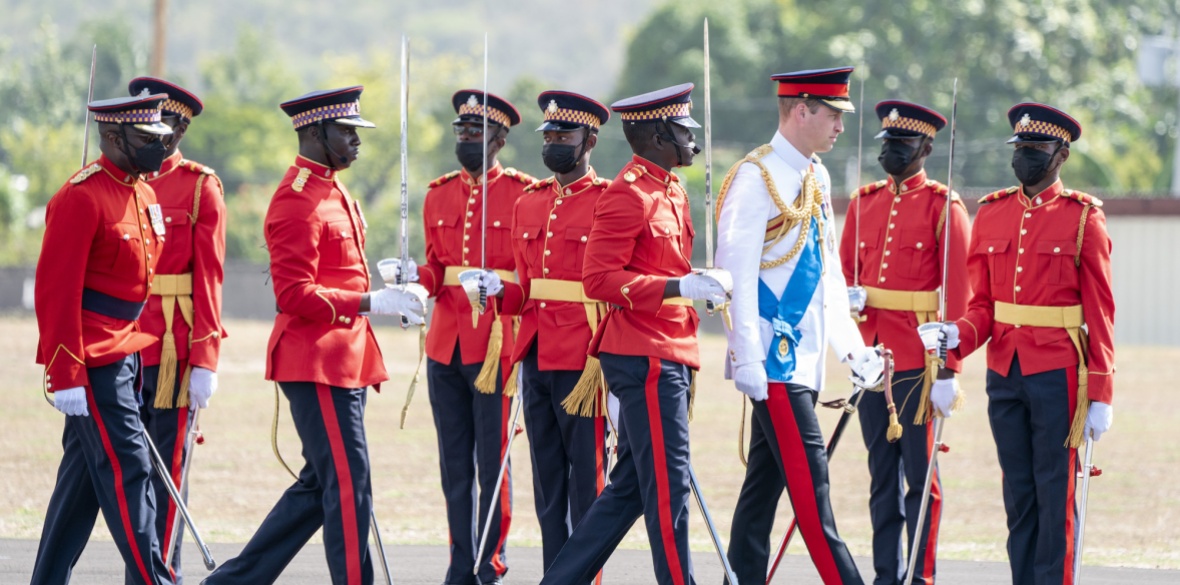This is the last article you can read this month
You can read more article this month
You can read more articles this month
Sorry your limit is up for this month
Reset on:
Please help support the Morning Star by subscribing here
AT THE height of the pandemic, I decided to get a DNA test to find out which African family I am from.
The results showed I am 100 per cent part of the Tikar people who live in what is now known as Cameroon in west central Africa.
I immediately felt a mixture of pride, surprise and anger.
The pride was because I now have a clearer idea of my heritage. It has never been enough for me to say that I am of African heritage — Africa is huge.
I was surprised, because from my understanding of enslavement patterns in Jamaica, where both my parents were born, I was far more likely to be descendent from the Ibo, Yoruba or Akan people.
I was angry because enslavement meant that having to take this test was necessary and my history was stolen from me as the lives of my descendants were.
Since watching the classic TV series Roots as a boy I have often, like many in the diaspora, dreamt of being able to trace my heritage.
The terrible ordeal that my ancestors endured as they crossed the Atlantic and the degrading treatment they experienced on plantations in Jamaica is never far from the front of my mind.
A few years ago, I was able to trace my family roots back to a particular plantation near Montego Bay. The prospects of going back further are remote but it’s something I still dream of achieving.
In March this year Prince William visited Jamaica and expressed his “profound sorrow” for slavery.
He couldn’t bring himself to say anything about the immense amount of money the royal family has made from the enslavement of Africans.
He made no mention of the reparations owed to descendants of those stolen from Africa to supply sugar, tobacco and other goods to Europe.
William echoed the words of his father Charles, who described the transatlantic slave trade as an “appalling atrocity” during a recent visit to Barbados when that Caribbean nation severed its ties to the British crown and became a republic.
“I want to express my profound sorrow,’’ William said, “Slavery was abhorrent, and it should never have happened.’’
William said anniversaries such as the International Day of Remembrance of the Victims of Slavery and the Transatlantic Slave Trade provide a moment for “reflection.”
The Advocates Network, a Jamaican alliance of human rights activists, rightly rejected William’s comments and said it did not constitute the apology it was seeking.
“It is merely an acknowledgement that slavery was abhorrent. A bad thing that all well-thinking persons would condemn. There was no responsibility taken! No call-out of centuries of British bloody conquest and plunder. No call-out of the dehumanisation and exploitation,” it said.
It also accused William of uttering “empty words” that don't rise “to the level of the formal apology that we deserve.”
Protesters in Jamaica demonstrated outside the British High Commission with raised fists, wearing T-shirts showing a pair of shackled black wrists surrounded by the phrases “Seh Yuh Sorry!” and “Apologise now!”
The campaign for something more than saying sorry — reparations — is a long-standing one across the African diaspora.
It is often forgotten — or perhaps more accurately, ignored — that most enslaved Africans were taken to Brazil rather than the US or the Caribbean islands. Brazil has a thriving and active tradition of black radical activism that rarely gets reported outside of South America.
I say this to make the point that I fully understand the difficulties that would need to be overcome to make sure that all across the African diaspora received reparations. But receive reparations we must.
In Britain the black members of the RMT have led the fight for reparations for many years, as has the Global Afrikan Congress which was set up soon after the UN World Conference Against Racism in Durban, South Africa, in 2001.
They have shown a relentless and inspiring dedication to keeping the campaign for reparations alive.
I am sure that the RMT is rightly proud of its work which is seen by black members across the movement — and worldwide — as pioneering.
We now need to reinvigorate the campaign for reparations by paying attention to restitution, compensation, rehabilitation, satisfaction and guarantees of non-repetition recognised by the UN.
It is certain, however, that platitudes about the wrongs of the transatlantic slave trade alone will not do.
It is time that hard restitution is made for one of the evillest episodes in the history of humanity.
On a smaller scale, black people have long been expected to accept apologies for racism. We sometimes face chastisement if we choose not to accept yet another apology — as if there is some law that says we must.
I’m almost sure that this is what will happen at some stage with the Forde report. There will be an apology of sorts which the black people who have been the subject of disgusting racism will be expected to accept and alongside an undoubted promise of some sort of limp “diversity” or “unconscious bias” training.
In the meantime, the racism will continue, masked or otherwise, just as the legacy of slavery is either disguised or increasingly tough to see.
The fight for reparations is as important now as it has ever been. In fact, it is arguably more important now as enslavement becomes presented as ancient history rather than very recent history.
My thanks to those like the RMT and Global Afrikan Congress who have kept the reparations torch burning. We now need more torches with stronger flames.
Roger McKenzie is a journalist and general secretary of Liberation — www.liberationorg.co.uk.











